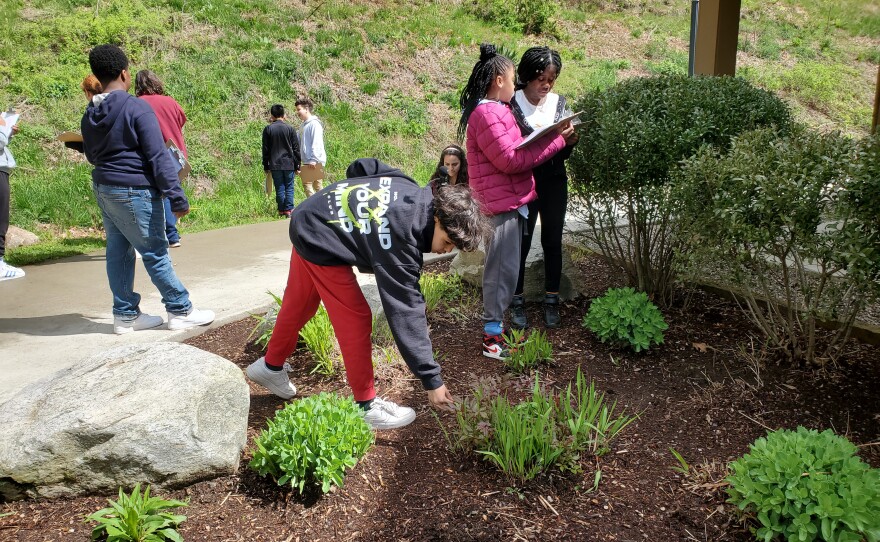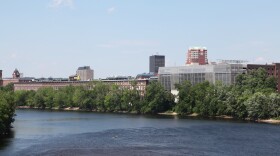Para leer este artículo en español, haz clic �����í.
Shaylee Gutierrez knows all about the water cycle, and she can tell how old a fallen tree is by how many rings there are on the stump.
Shaylee is a sixth grader in Springfield. While she learned some things about nature in school, she mostly gained that knowledge from her experience with the district's partnership with the , known by most people as ECOS.
"I thought it was going to be like boring stuff. But then when we went to ECOS it was a lot of fun. We could learn about nature and... we could do, like activities... like planting trees or looking at exploring at little bugs or looking out for birds," she said.
ECOS has partnered with the for 50 years and has taught thousands of students who live in an urban environment how to spot poisonous plants, build a shelter and start a fire in an emergency.
The school district has over 24,000 thousand students. Jose Escribano, the chief of family and community engagement, says most are students of color, and about 60% of students are Latino.
Not only does Escribano support the program as an educator. He credits his love of nature to ECOS, since he went through the program more than 30 years ago as a kid.
"I love the outdoors. I love ponds. And I think that comes from my experience at ECOS. I have a pond in my backyard because of ECOS," he said.
"Bringing science to life"
The program is based at Forest Park, the city's largest outdoor recreational space, with gardens, hiking trails, several ponds, and even a zoo. For many students it's their first experience being in nature outside of a neighborhood playground.
Before he was the district's chief engagement officer, Escribano was a principal at Brightwood Elementary School, which is located in the city's North End area and has the largest population of Latino residents in the city. Escribano said while many of these students participate in sports or play in the park, ECOS helps them understand the natural world around them.
"I think it just really brings to life and enhances what they're learning in school... it's just a way to bring science to life and make it real for our students," he said.
Many years before he became a principal or even a teacher, Escribano was a student at Brightwood and vividly remembers his experience at ECOS, mainly walking through the woods and exploring different trees.
“I remember they had the gum tree that you would break the branch and smell it and... going into the pond and looking at the insects and looking at the frogs and the tadpoles and all that, those are just some of the experiences that kind of stayed with me," he said.
As for Shaylee, a much more recent participant, ECOS has made her think about her future, and two possible career options.
"A hydrologist is like someone that wants to... explore more about like the water and a geologist learns and explores a bunch of stuff like Earth, like the rocks and how land formed," she said.
As a sixth grader, Shaylee will have two more years of participating in the program and she says she’s excited about everything she'll learn.
"How I feel when I go to ECOS is that I feel curious about everything I see and it makes me feel more happy about being outside in nature," she said.
This is the second video in , a weekly video series this fall from the New England News Collaborative.







